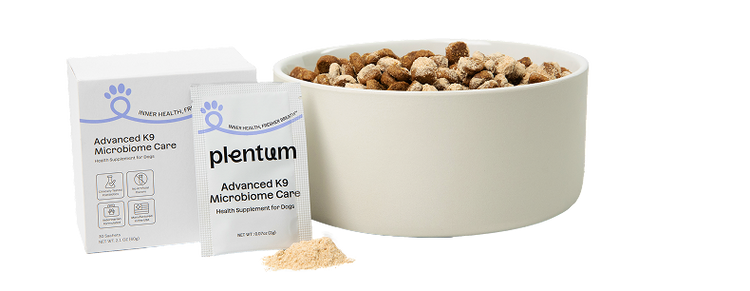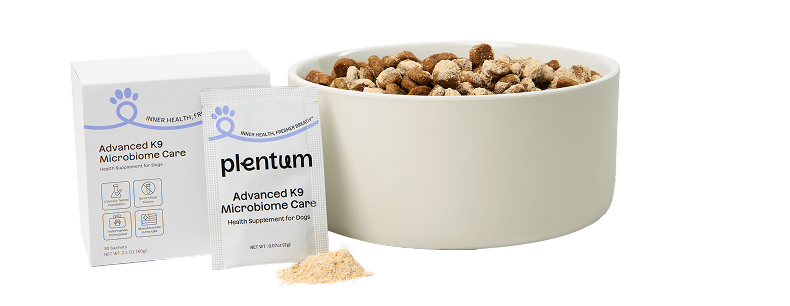Every pet owner dedicates themselves to achieving the same goal, which involves spending additional time with their dogs while maintaining their health and happiness. The pet aisle and online shopping platforms offer customers a wide selection of products which promise to provide both shiny coats and longer product life. The wide range of dog supplement options creates difficulties when trying to evaluate their actual health benefits.
The short answer contains multiple layers of meaning. The supplement market continues to grow, but dogs should only receive supplements when their health needs extra nutritional support. The following post will assist you in distinguishing between marketing promotions and scientific nutritional evidence to select the optimal food for your pet.
The Expert Consensus: Are Dog Vitamins a Necessity?
The veterinary community agrees that most healthy adult dogs do not require any general-purpose supplements. Why? The Association of American Feed Control Officials (AAFCO) has established detailed rules which govern the production of pet food products. A dog food label that states "complete and balanced" must contain all necessary nutrients which ensure your dog stays healthy.
The addition of extra vitamins and minerals in this situation would result in unnecessary expenses while creating potential health dangers. The body stores fat-soluble vitamins, including Vitamin D, which can cause toxicity when their levels reach excessive amounts.
When is a Daily Canine Care Supplement for Dogs a Good Idea?
This is the key question. Supplements transform from unnecessary items to highly beneficial products when veterinarians use them to treat particular conditions they have diagnosed.
Your vet may recommend a supplement in several key situations:
-
Diagnosed Health Conditions: This is the most common reason. A dog with osteoarthritis should receive joint support as a treatment, but probiotics serve as the best option for dogs with chronic intestinal problems.
-
Non-Standard Diets: A home-cooked diet for dogs requires a customized vitamin and mineral supplement because it safeguards dogs from dangerous nutritional problems.
-
Specific Risk Factors: A veterinarian would recommend supplements for dogs who need special health protection, including joint support for large-breed puppies and senior dogs.
Quick Tip: Your Vet is Your First Step
Never provide supplements as treatment for symptoms which you found through Google research. A dull coat together with lethargy might indicate that your dog has a severe medical issue. A vet visit is the only way to get an accurate diagnosis and ensure a supplement is the right—and safe—choice.
What Ingredients Should I Look For in Dog Supplements?
Once you and your vet have identified a need, the next step is to look for proven, high-quality ingredients. An effective all-in-one dog supplement for advanced wellness will often combine multiple ingredients that work together to support whole-body health.
Advanced canine supplements contain multiple ingredients which function as synergistic blends instead of depending on single or dual components. Pet owners frequently look for assistance when their pets experience joint problems, digestive issues, and skin allergies. Look for particular ingredients which have scientific research to demonstrate their effectiveness.
-
For Joint and Skin Health: Fish Oil (Omega 3) stands as a scientifically proven supplement. The supplement contains EPA and DHA, which serve as essential nutrients for dog joint mobility, cognitive function, and skin health maintenance.
-
For Digestive & Gut Health: This is a cornerstone of modern supplements. A good formula should contain Inulin as a prebiotic fiber which nourishes beneficial gut bacteria and L-Glutamine as an amino acid that maintains gut lining health.
-
For Skin & Immune Function: The formula requires Zinc Methionine and Vitamin E as essential components. Zinc serves as an essential nutrient which supports immune system operation and skin wellness, and Vitamin E functions as an antioxidant that defends cells.
Modern supplements differentiate from previous versions because they contain various elements which combine together. The body will better absorb Zinc and Fish Oil when it receives initial gut health support through Inulin consumption. The combination of these elements allows users to create a complete daily canine care supplement.
How to Choose a Safe and Effective Supplement
The U.S. Food and Drug Administration (FDA) conducts no efficacy testing on animal supplements before they become available for purchase in the market. Businesses operating in "buyer beware" market environments need to make quality control their top priority.
So how do you find a brand you can trust?
Look for the NASC Quality Seal. This is the single most important thing to find on a product's label. The National Animal Supplement Council (NASC) operates as a third-party organization which establishes rigorous standards for product quality, manufacturing processes, and purity levels. A company needs to succeed in an independent audit process to obtain this seal. The seal serves as your main assurance that every ingredient listed on the product label is actually present in the product.
The Future: From General to Personal Wellness
The question is shifting from "do dog supplements really work?" to "Which specific supplement will work for my dog?"
People now prefer specific vitamin formulas which scientists have proven effective instead of using standard multivitamins. Trends like the all-in-one dog supplement for advanced wellness and personalized dog supplement subscription services aim to provide a more tailored approach.
At Plentum, we believe in this targeted, science-first philosophy. A daily canine care supplement requires individualized approaches because it does not work for all dogs. The tool needs to function as an exact instrument which supports your dog's specific biological needs, regardless of their microbiome, joint, or oral health requirements.
Are you ready to discover scientific evidence which proves the effectiveness of support systems for your canine companion? Learn more about Plentum's advanced canine supplements.
References
(1) Association of American Feed Control Officials (AAFCO). (n.d.). Supplements. https://talkspetfood.aafco.org/supplements
(2) U.S. Food and Drug Administration (FDA). (2023). Vitamin D Toxicity in Dogs. https://www.fda.gov/animal-veterinary/animal-health-literacy/vitamin-d-toxicity-dogs
(3) Purina Institute. (n.d.). Supplements for Dogs and Cats. https://www.purinainstitute.com/science-of-nutrition/supplements-for-dogs-and-cats
(4) ZimmVet. (n.d.). Over the Counter Anxiety Supplements for Dogs. https://www.zimmvet.com/blog/over-the-counter-anxiety-supplements-for-dogs
(5) Dog Aging Project. (n.d.). Rapamycin Trial. https://dogagingproject.org/rapamycin-trial/
(6) National Animal Supplement Council (NASC). (n.d.). NASC Quality Seal. https://www.nasc.cc/quality-seal/









